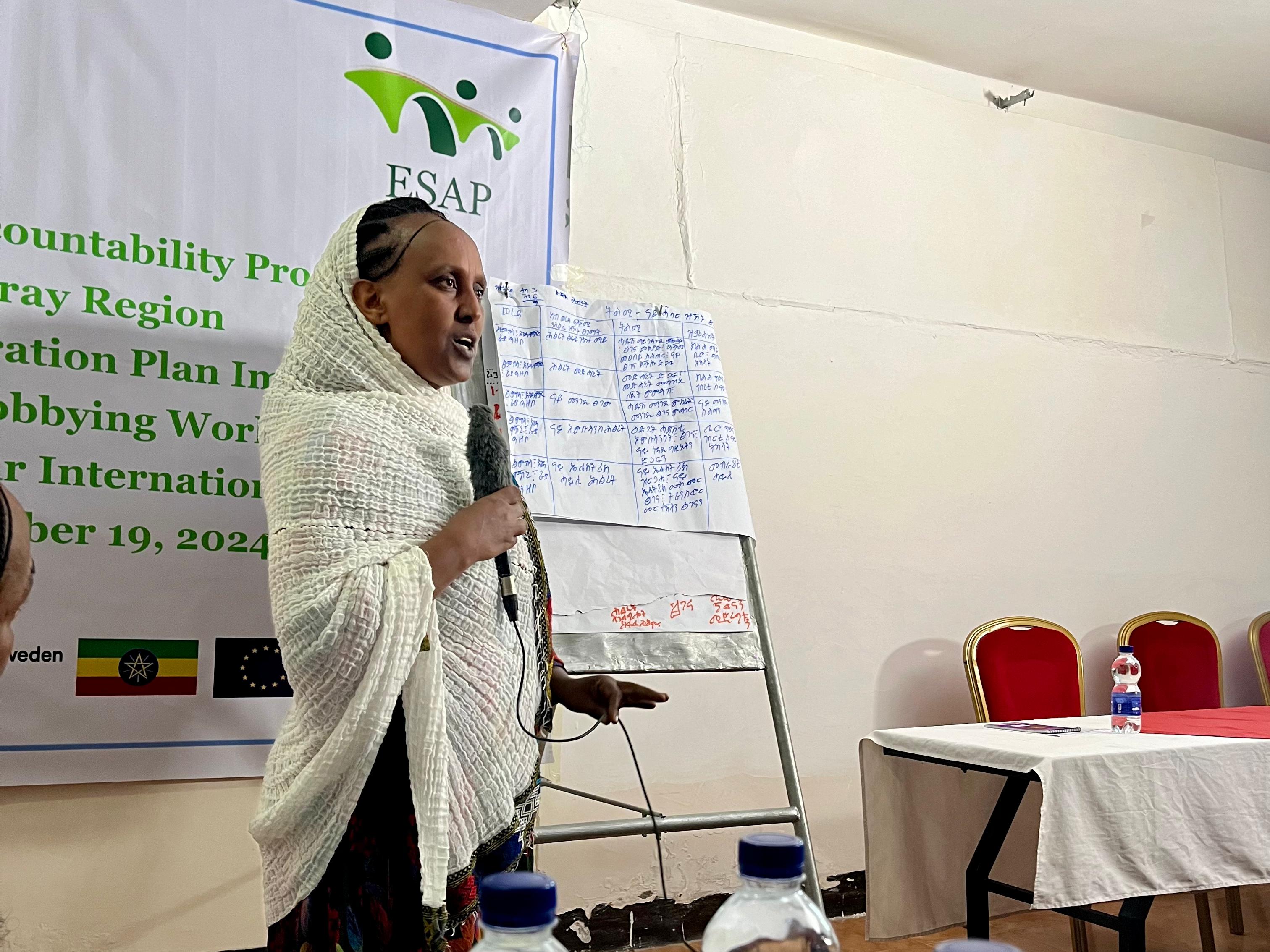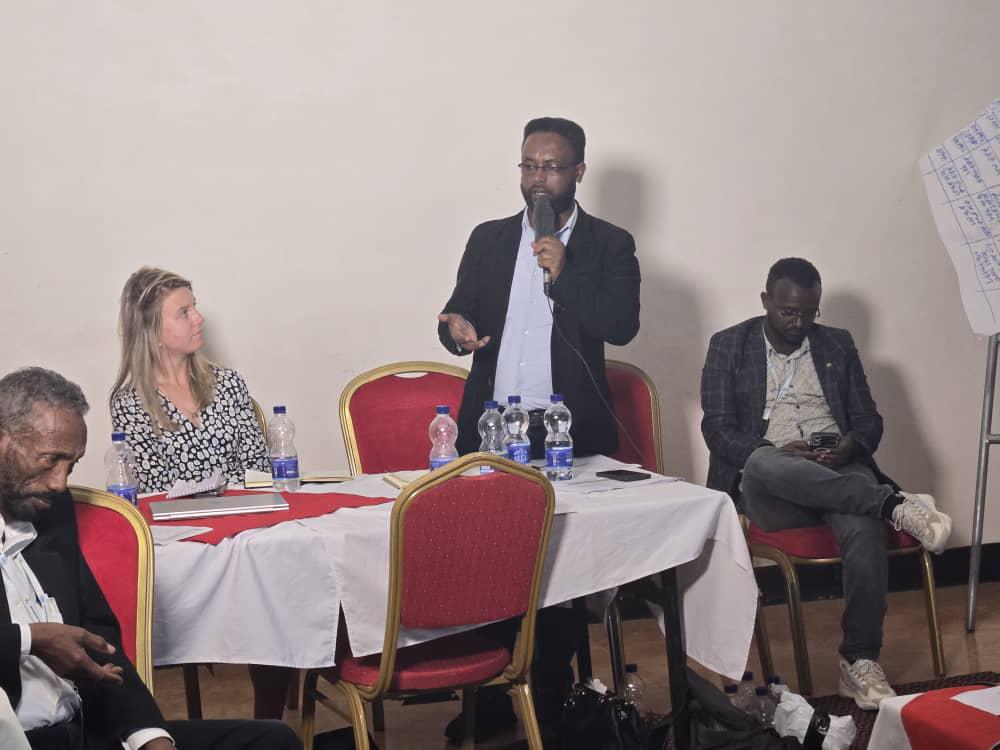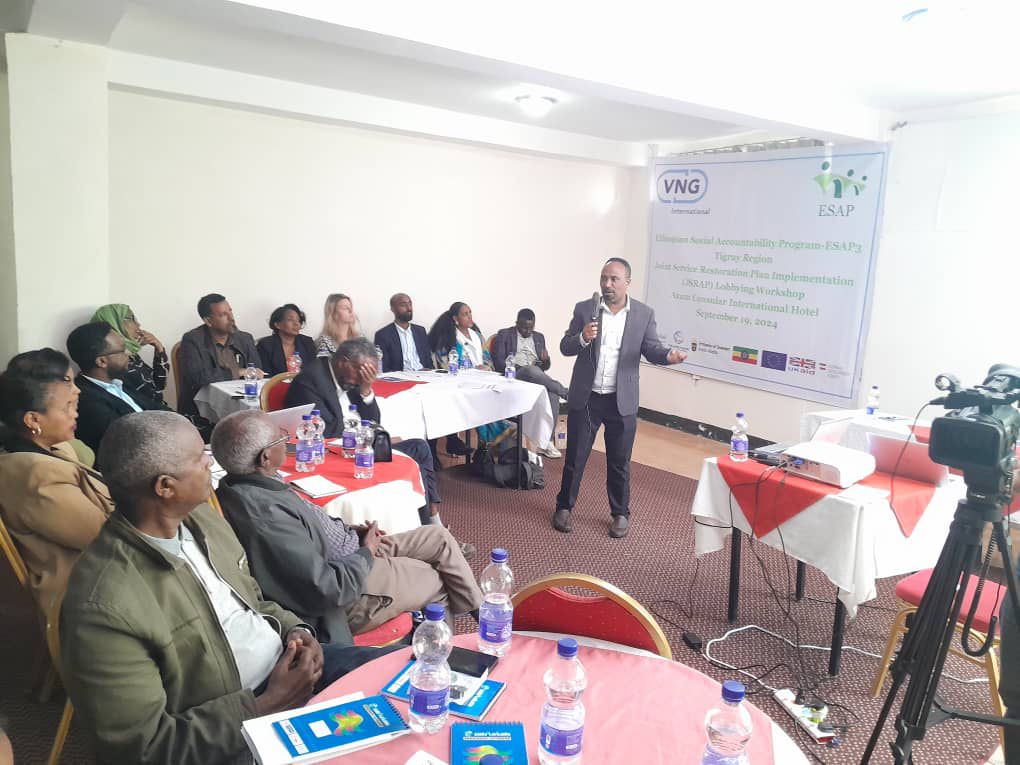In the aftermath of the civil war in Tigray region, in the north of Ethiopia, efforts to restore essential services and rebuild infrastructure have taken center stage. A critical aspect of this recovery is the implementation of reconstruction programmes. One such initiative, led by VNG International, has been working closely with local governments in twenty woredas (districts) across the region, which emphasize community-driven priorities, governance reforms, and local ownership of the reconstruction process. Since July 2023, this program has supported the development of local reconstruction plans, designed to ensure that communities directly impacted by the conflict are involved in decision-making. The emphasis on good governance and community involvement helps shift the recovery process from a top-down model to one where citizens play a central role in determining the allocation of resources, which is crucial for sustainable peace and stability.
In October 2024, VNG International hosted a dialogue between the woreda-level governments, civil society and the interim Regional government to reconcile these locally-led plans into the regional reconstruction plan. Sisay Getachew, Capacity Development Team Lead for the program, highlighted the importance of attracting both federal and international support for these efforts. Despite the extensive damage to infrastructure, the federal government has allocated minimal capital budget to Tigray. What is remarkable already is that various international organizations have started to recognize the data-driven priorities identified by communities and funded them through their programmes. This engagement provides a critical foundation for lobbying efforts, with the potential to attract further support from donors.
Bo Altena, Programme Director of the Ethiopia Social Accountability Programme, also emphasized the unique features of the program, such as the inclusion of trauma healing in governance processes and flexible, locally-adapted programming. VNG International has been able to adapt a general Social Accountability approach into a conflict-sensitive approach that works in the various regions and contexts of Ethiopia. This approach not only ensures the equitable distribution of aid but also fosters dialogue and reconciliation within affected communities. The inclusion of trauma healing is essential, offering a space for people to share their experiences, express grievances, and begin the long process of reconciliation.
VNG International's material support—providing data collection and surveying through ICT materials, stationery, and computers to schools and service providers in twenty woredas—has bolstered local efforts to promote SA activities. It may seem that governance and dialogue programs may seem secondary in the immediate aftermath of a conflict, where food, shelter, and safety are pressing concerns. However, establishing fair systems and community-driven governance helps lay the groundwork for long-term recovery, preventing further grievances and ensuring that resources are distributed equitably. As VNG International continues its work in Tigray, the post-distribution monitoring survey, currently underway, will provide further insights into the effectiveness of these interventions. The survey aims to identify gaps, strengthen partnerships, and ensure accountability to both donors and communities. The lessons learned from Tigray's recovery efforts could serve as a model for other regions affected by conflict, demonstrating the power of local ownership in the reconstruction process.




